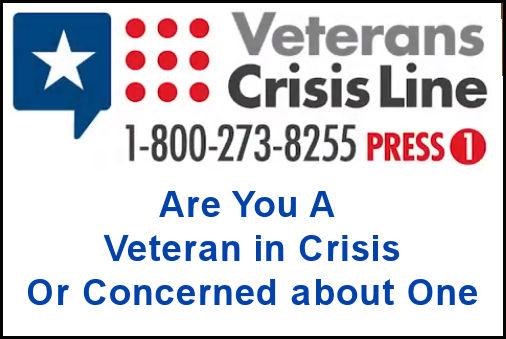
by larryw | Sep 11, 2021 | American Legion Post 178, Memorial
September 11 marks a tragic day in U.S. history, but the date has also been chosen to honor those who lost their lives in the terrorist attacks of September 11, 2001.
Patriot Day honors the memory of the nearly 3,000 innocent victims who died in the September 11, 2001, terrorist attacks. Each year Americans dedicate this day to remembering those who died and to the first responders who risked their own lives to save others.
On December 18, 2001, President George W. Bush officially designated September 11th as Patriot Day.
The day has also been designated as a day that the U.S. flag should be flown at half-staff from sunrise to sundown, not just until noon as is done on Memorial Day. In addition, the people of the United States are asked to observe a moment of silence on Patriot Day in remembrance of the victims

by larryw | Sep 6, 2021 | Community
Labor Day pays tribute to the contributions and achievements of American workers and is traditionally observed on the first Monday in September. It was created by the labor movement in the late 19th century and became a federal holiday in 1894.
Labor Day is still celebrated in cities and towns across the United States with parades, picnics, barbecues, fireworks displays and other public gatherings. For many Americans, particularly children and young adults, it represents the end of the summer and the start of the back-to-school

by larryw | Sep 2, 2021 | Anniversary
On August 14, 1945, it was announced that Japan had surrendered unconditionally to the Allies, effectively ending World War II. Since then, both August 14 and August 15 have been known as “Victory over Japan Day,” or simply “V-J Day.” The term has also been used for September 2, 1945, when Japan’s formal surrender took place aboard the U.S.S. Missouri, anchored in Tokyo Bay. Coming several months after the surrender of Nazi Germany, Japan’s capitulation in the Pacific brought six years of hostilities to a final and highly anticipated close.

by larryw | Sep 1, 2021 | Community, Health
September is National Suicide Prevention Month. During this month, mental health professionals and advocates work to prevent suicide. Efforts are not only dedicated to preventing the rate of suicide, but also to help communities who are at a greater risk for committing suicide.
Veterans, for example, are at a much higher risk for developing mental health conditions that often go untreated and lead to this tragic result. Now more than ever it’s important to give emotional support to veterans. We need to keep our veterans safe.
Studies show that suicide is the 10th leading cause of death in the United States. The typical state suicide rate for veterans is typically much higher than the general population. This means that, on average, the proportion of casualties for suicidal veterans is greater than non-service members who commit suicide in our country.
These statistics are shocking, considering that suicide can be prevented with enough awareness and the right resources for those struggling. There are countless factors that contribute to suicidal thoughts and acts for veterans. Things like combat exposure, substance abuse, injury, struggle to return to civilian life, and military sexual drama all add to the risk of self-harm and committing suicide.
The truth of the matter is that a large majority of veterans experience all these factors and more because of the nature of their jobs. By serving the country, veterans often put others’ safety above their own. This is exactly why having resources in place for veterans to seek preventative and active mental health care is so essential in preventing suicide.
Knowing the signs of mental health issues like PTSD, substance abuse, and the risk of suicide can be challenging. Keep an eye out for the following mood or behavioral changes:
- Feelings of hopelessness
- Making risky, impulsive decisions
- New or worsening mental illness symptoms
- Misuse of drugs (illicit or prescribed) and alcohol
Always seek help right away if you or someone you know is currently unsafe. Connect with the Veterans Crisis Line at 1-800-273-8255 to reach caring and qualified responders.
Whether Veterans are looking for clinical care, counseling, assistance with benefits, or something else, local and national tools and resources are available at the Veterans Crisis Line website.

by larryw | Sep 1, 2021 | American Legion Post 178
September is National Service Dog Month, a time marked to pay tribute to the animals who support Americans with special training to help with people dealing with vision impairment, medical issues, mental health, and many other areas.
A service dog is trained for as long as two years at an expense that can reach as high as $40,000. The training for service dogs varies depending on the emphasis. Medical alert dogs will have different skill sets than those who assist people with unrelated medical issues.
There is no single breed of preferred service dog. They can be large or small, they can be especially bred for service or they can be sourced as rescue dogs. There are dogs trained to help the visually impaired, those with PTSD, and much more.
Post-traumatic stress disorder (PTSD) can occur when an individual experiences a traumatic event like combat, military sexual trauma, violence, and terrorism. It is normal for most people to have a stress reaction after a traumatic experience. But, if the reaction doesn’t dissipate or begins to disrupt daily life, then you may have PTSD. According to the National Center for PTSD, eight out of every 100 veterans have PTSD.
If you or a fellow comrade is struggling with PTSD, here are nine organizations that can help:
Military OneSource
National Alliance on Mental Illness
PTSD United
Give an Hour
BraveHeart: Welcome Back Veterans Southeast Initiative
PTSD Foundation of America
National Suicide Prevention Lifeline
National Resource Directory
Suffering from PTSD can be a lonely and isolating experience. The first step to getting well and learning how to manage your symptoms is to ask for help. There is absolutely no shame in admitting that you may not be able to cope by yourself. Know that you are not alone and use these resources to contact professionals who are ready to help.





